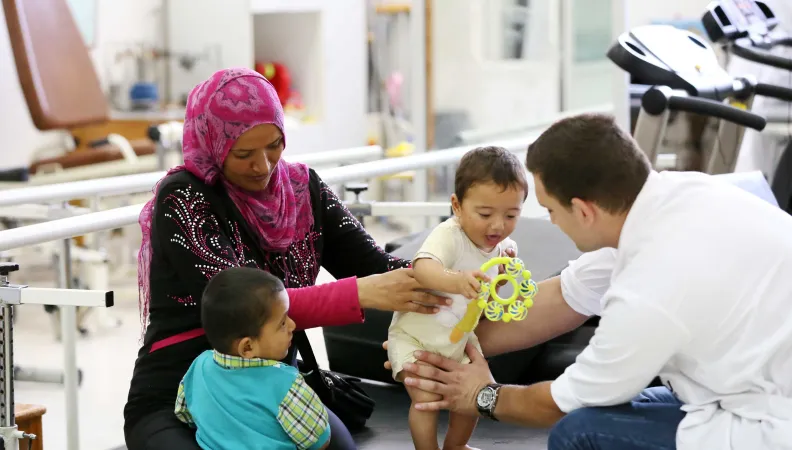Share the page
Community social protection in Lebanese municipalities (phase 2)
Project


-
Project start date
-
-
Project duration
-
24 months
-
AFD financing amount
-
€ 1 500 000
-
Country and region
-
Location
-
North Lebanon: Halba Bekaa: Zahle, Chtoura, Bar Elias Beirut/Mount Lebanon: Bourj Hammoud, Damour, Sid Bouchrieh
-
Type of financing
-
Beneficiaries
-
arcenciel
The Lebanese NGO arcenciel is working to improve social action for Lebanese and refugee populations in vulnerable municipalities. Following on from a 1st phase launched in 2016, AFD wished to extend its support for this project for a 2nd phase.
Context
Between 2011 and 2017, the Syrian crisis led to the exile of over 5 million Syrian refugees to neighboring countries: Turkey, Lebanon, Jordan and Iraq. This massive influx has major social, economic and political consequences, which tend to exacerbate existing tensions and vulnerabilities in countries in the region. AFD has set out to address the impacts of the crisis by launching the SAWA Initiative, to help these countries strengthen their resilience and accelerate their recovery. One of SAWA’s activities is to finance projects led by NGOs, which directly target populations affected by the crisis.
For example, in 2016, AFD financed three projects in Lebanon, Jordan and Iraqi Kurdistan following a “Crisis and post-crisis” call for projects. The objective was to strengthen the social resilience of refugees and host communities, while building the capacities of local actors. In response to the protracted nature of the crisis, AFD decided to extend the activities of these three projects via a new financing phase for a total of EUR 5m.
Description
The 2nd phase of the project led by arcenciel is being implemented in Lebanon, in the North Lebanon, Beirut/Mount Lebanon and Bekaa regions. The objective is to improve living conditions for 10,000 vulnerable Syrian refugees and Lebanese people, by providing access to health, social and youth services and building the capacities of municipalities. The project will achieve the following results:
- The local social protection system will be strengthened in 8 disadvantaged municipalities, in particular by training 16 community workers and 8 youth workers;
- Over 10,000 Syrian refugees and vulnerable Lebanese people will have better access to social and health services. Home visits will make it possible to better target their needs and refer them to the appropriate services: coverage of medical consultations, vocational training, distribution of hygiene and food kits;
- 324 vulnerable young Syrian refugees and Lebanese people will take part in activities for sport, psychosocial support, vocational training and for assistance in integrating the labor market.
Impacts
- Eight municipalities with increased capacities to more effectively coordinate their resources for social services, identify vulnerable populations and ensure sustainable support for the most deprived;
- Improved living conditions for Syrian refugees and vulnerable Lebanese people through greater access to quality social, health and youth services;
- Improvement in the psychosocial well-being of young people, who gain confidence and have greater vocational integration;
- Greater social cohesion between communities thanks to better access to essential social services and participation in common activities.


